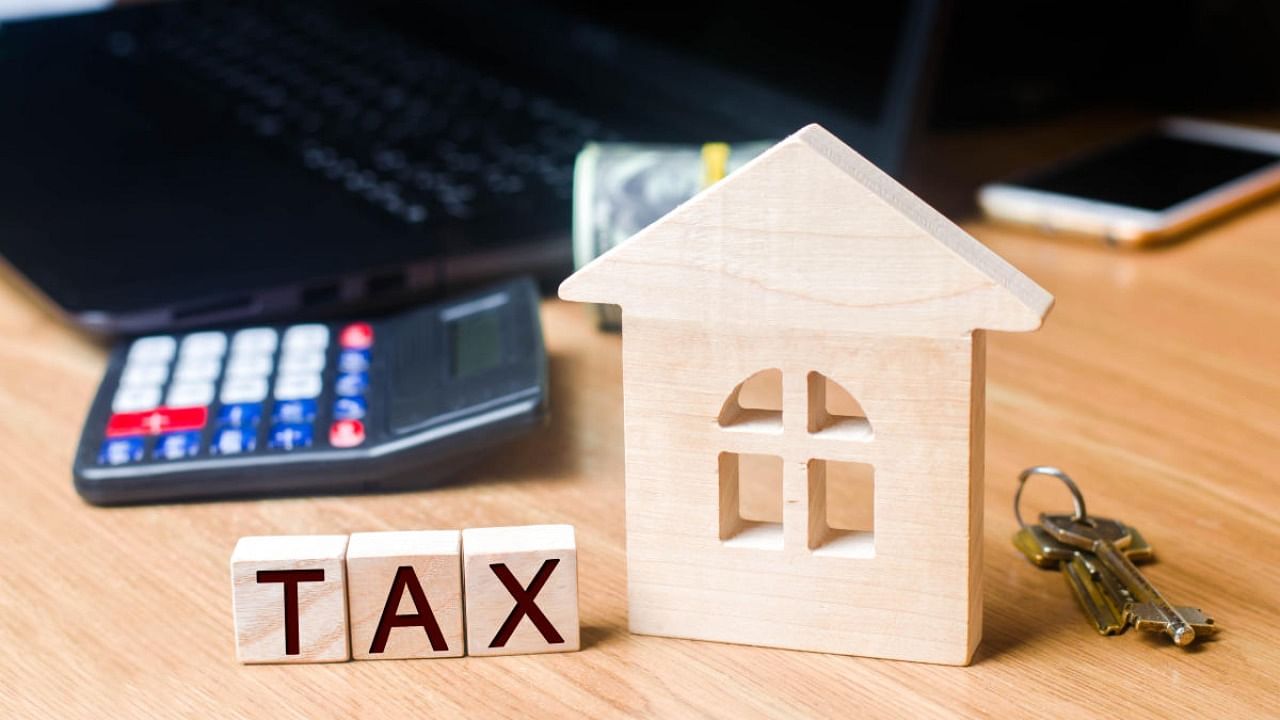
Representative image of property tax.
Credit: iStock Photo
Real estate plays a significant role in the investment portfolios of many Indians and is subject to various forms of taxation, including property tax, stamp duty, wealth tax, TDS, GST, and more. Despite these tax obligations, people continue to invest in real estate due to the promising opportunities within the industry. While there are numerous taxes to contend with, there are also strategies available to optimise returns and minimise tax liabilities.
Depreciation benefits
Landlords will be able to claim the depreciation as expenses and reduce taxes paid. Depreciations will be calculated based on how you acquired the property, if the property is commercial or residential. Depreciation is calculated on the building and not on the land. Any additional materials invested in the building for the purpose of renting can also be calculated for depreciation.
Deduction benefits
Money spent by the landlord such as interest on home loans, municipal taxes, and standard deductions on the net value can be applied. These deductions will be marked as expenses and then the taxable income can be reduced. This is only possible if the property is a housing rental income of an individual.
Capital gains benefits
Capital gains are of two types; short-term capital gains are gains from the sale of property within a year from the purchase date. While long-term capital gains are gains from the sale of property after a year from the purchase date. Short-term gains are taxed at 15%, while long-term gains are taxed much less at 10%.
Long-term capital gains can take advantage of indexation benefits, that is the value of the property can be adjusted to inflation as per government standards. So the difference after indexation and the sale value is calculated as profit reducing the taxable capital gain
After the sale of the property, the profits from the sale can be re-invested in another property so that there are nil taxes. If the goal of the sale is wealth creation, then buying more properties from the profits will incur nil taxation from the government.
Joint ownership benefits
Dividng the ownership of the property among the members of the family will allow for the division of income that falls under different tax slabs of people present in the family thereby reducing the taxable income. This strategy can be used in case of rental income as well as capital gains from the sale of a property.
Set off and carry forward losses
If there are many properties owned by the same person, but some are giving good returns and some are exposed to losses. This scenario can be used as an advantage to show losses and reduce the overall gain of that particular person from all his properties thereby reducing his total taxable income
Also, if there are losses from the previous year, those losses can be carried forward to compensate for the profits of the current year. This will represent minimal gains in the current year, reducing the current year’s taxable income
Qualified retirement plans
Earnings from rental income or property gains can be invested for your retirement into any qualified retirement plan.
This investment will incur no taxes during investing as profits are re-invested and will not incur any taxes even during retirement or utilisation of the retirement plan
Entity structuring
Structuring businesses can be used in your favor by understanding the margins of different businesses. It gives organisations the flexibility to allocate income and expenses. Apart from this, entity structuring can also benefit from limited person liability and pass-through taxation
Gifting
Asset transfers and investments as gifts can be done to avoid taxes from both the sender and the donee side
(The writer is Co-Founder & CEO, Kots)